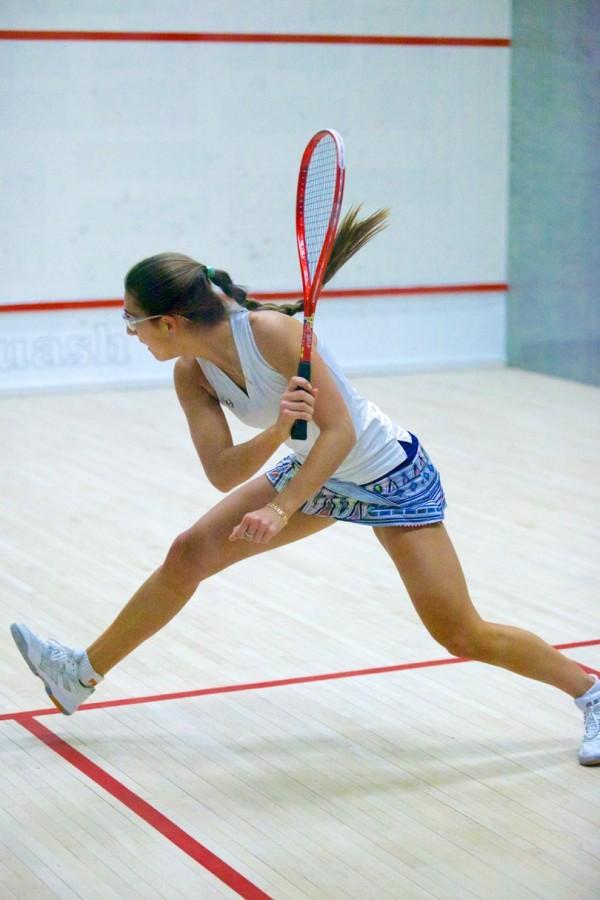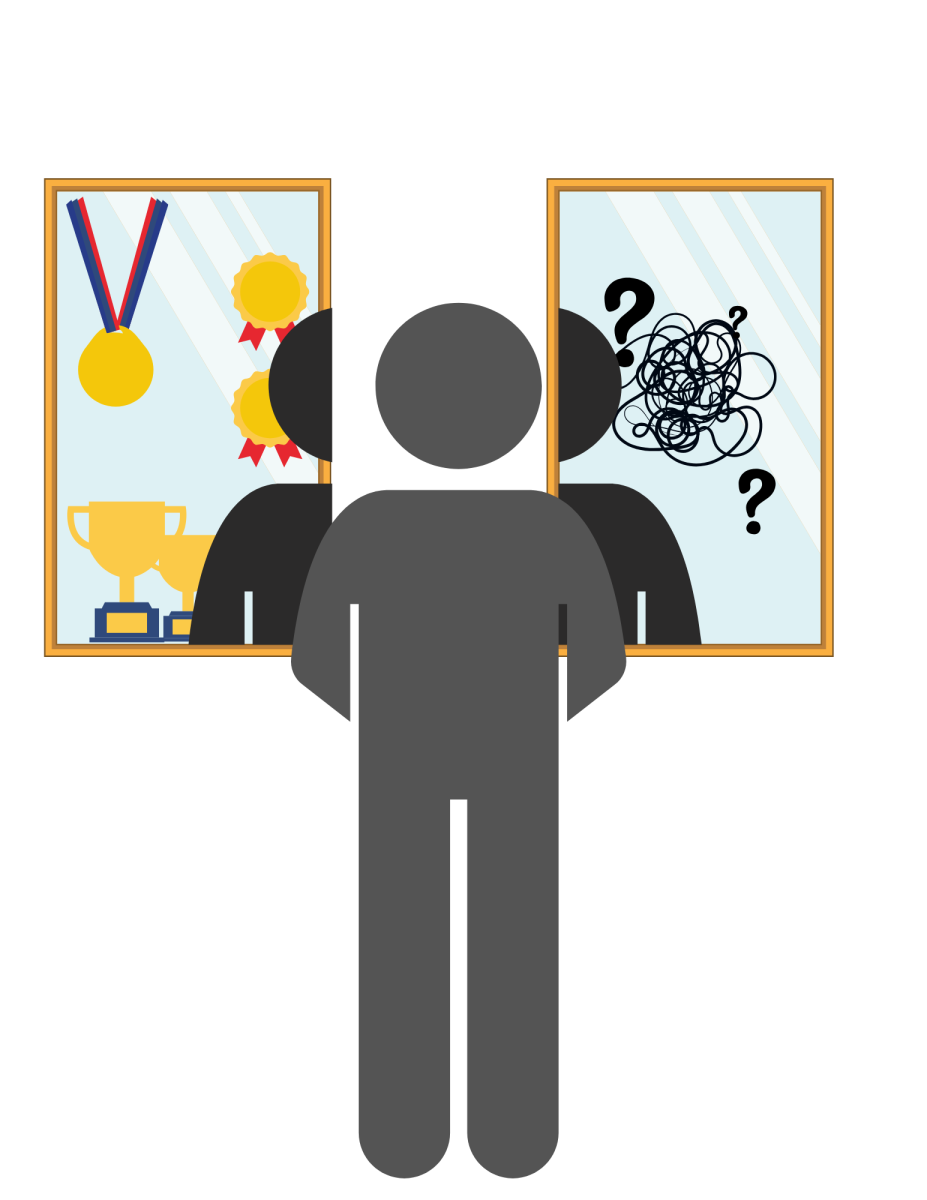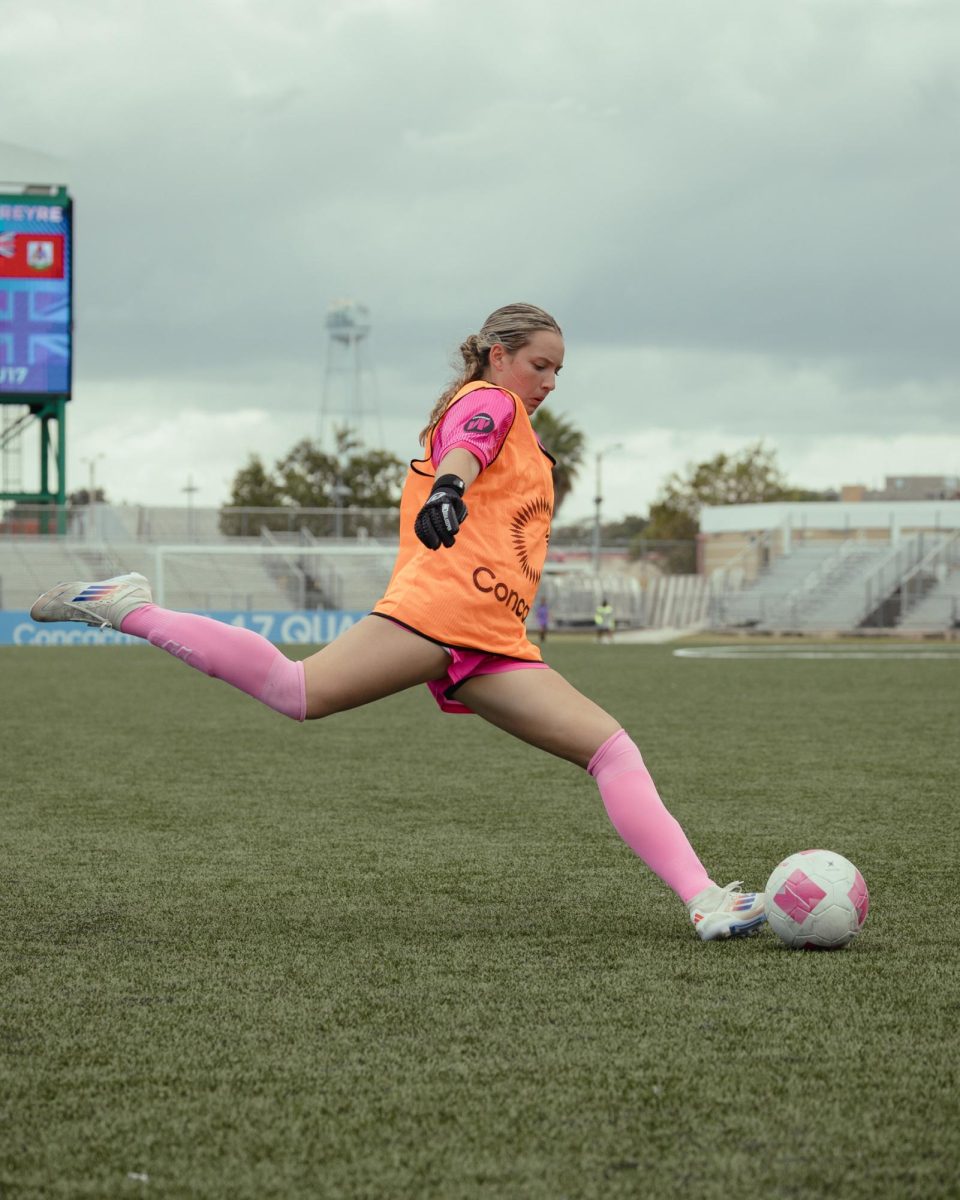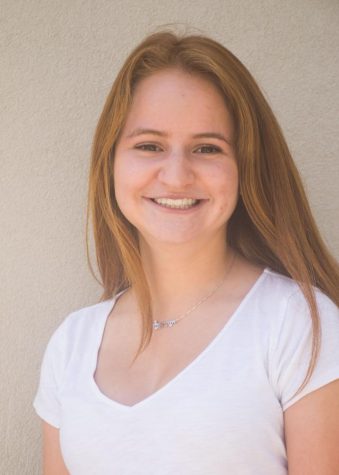When you think of popular sports; football, basketball and soccer immediately come to mind. On the other hand, people rarely think of squash. But Trinity students should start taking notice because amongst us is a world ranked squash player—senior Chloe Chemtob.
Chemtob has been playing squash ever since she was able to hold a racquet. She was first introduced to the sport by her father.
“My dad is a huge squash fanatic,” Chemtob said. “He is from Montreal where squash is pretty popular. He got me started.”
Chemtob was an avid tennis player between the ages of four to seven. While she played squash for fun, it never captured her undivided attention until her tennis pro at the RDV Sportsplex in Maitland quit. Searching for a new sport, Chemtob had access to one of the only two courts in the Orlando area. Between that and her dad’s affinity for the sport, Chemtob began to play squash for more than just leisurely exercise.
“I always played squash for fun,” Chemtob said. “And then I decided to start putting more time into it.”
The transition from tennis to squash was almost seamless, and she has not looked back since.
Squash is very similar to racquetball and is popular in the Northeast, Canada and many other countries around the world. It can be played in singles or doubles in a small, enclosed court. The court has four walls containing lines that mark where the players must hit the ball. Players violently hit the ball onto the front wall from where it can ricochet off and hit the other walls. Then, the attacking player must get out of the way to let their opponent to hit the ball. Games are played to 11 points in either a best of three or five game match. Although the court is small and may seem like it entails little running, the quick, short spurts of energy and movement required add up to a great workout.
She plays in about ten tournaments a year, usually in singles. Because of squash’s lack of popularity, most of her tournaments are either in the Northeast, California, Canada or even in Europe. Her travels have taken her to more than 20 countries, earning her international recognition in the sport .
While most athletes pledge their allegiance to the United States National Teams, Chemtob prefers to play for the Canadian National Team. She is a dual citizen of both the United States and Canada, giving her flexibility.
“[Canada] plays more events and helps the athletes more,” Chemtob said.
She has won two national championships with the Canadian team and a third with the United States team. Some of Chemtob’s biggest and most notable results are wins in the Scottish Junior Open, the Dutch Junior Open, Pioneer (German) Junior Open and the US Open. The latter is her most notable accomplishment because it was a professional tournament, which means she competed against much older girls.
Chemtob’s rankings are astounding. She is currently ranked first in the world for the girls under-19 category.
This level of success requires a tremendous amount of dedication to the game. Chemtob practices six days a week, and rests on Sundays. Her practices run about one to two hours long with her coach David Palmer, the top ranked player from Australia. She also spends up to an hour and a half per day off the court either cross training or watching film to better prepare herself. Her training includes accuracy and movement drills, conditioning games, practice matches with professionals from around Orlando and off court circuit training or yoga.
Chemtob recently committed to continue her squash career at Stanford University. The school is one of about 30 colleges that have a varsity squash team.
The popularity of squash is rapidly growing throughout the world, especially in the United States. England and Egypt also have strong connections to the sport. Squash is a recognized sport by the International Olympic Committee, but has not yet been officially played in the Games. With its popularity increasing, it may soon find itself a spot on the national stage.
Trinity offers about 50 sports teams, but squash is not included. This is because of space and interest. In order to be able to have at least one court, the school would need about as much space as the weight room in excess to build the courts. In addition, many high school kids have never heard of the sport, and if they have, have no clue how to play. Chemtob echoes this.
“There would not be too many people on [a Trinity] team,” Chemtob said.
Chemtob’s success in squash has just begun. Her great achievements in high school taking place all over the world will serve her well as she continues to improve her skill at the collegiate level. Her lifelong commitment to squash has led her to become one of the best players in the world.














